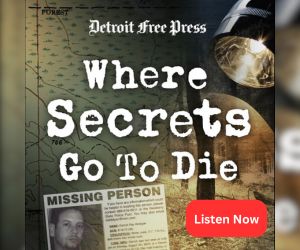By Carol Stiffler
Kind, gentle, witty Nathan Seitz collected admirers easily while at work in Newberry. He made strong connections with coworkers and customers at Hometown Pharmacy. Customers loved talking to him. Some brought him books to read. In just a few months on the job, he felt like family.
No one there knew how much pain he was hiding.
His mother, Kristen Salter, knew. Seitz, a 2022 graduate of Newberry High School, was candid and open with her at home: He was deeply depressed and dealing with extreme anxiety.
“Behind closed doors he was completely, utterly, brutally honest with his therapist about how he felt,” Salter said. “A lot of people don’t share because they don’t want to seem unstable. Nathan was very honest about it because he wanted help for it.”
Salter and Seitz sought help endlessly, visiting physicians and counselors and trying anything available. But because Seitz was underage – their desperate efforts began when he was 16 – psychiatrists couldn’t see him.
“I’m not blaming anyone, but it was just so difficult,” Salter said. “Why is it so difficult?”
The waiting was tortuous, Salter said. Seitz threw himself into his work, read history books, tried to teach his dog new tricks, and played video games to distract himself. But he was in anguish; life’s perceived stresses were privately terrorizing.
The day after his 18th birthday, he had his first appointment with a psychiatrist. Maybe it was too late. Maybe it would never have been enough.
Seitz was exhausted. On Tuesday, May 9, he ended his life.
He left a note. “I know things may have eventually gotten better for me, but everything has become too much,” he wrote.
He would have turned 19 on June 22.
“He did try. He so tried,” Salter said. “He tried effortlessly to get help. Life was just too much for him.”
Salter deeply appreciates the note Seitz left, which carefully explained his situation and choices, addressing concerns his family might have had. It also reveals the often concealed despair of depression, which Salter worries many people may not recognize.
“It’s definitely a problem for many families,” she said. “People are asking. I’ll tell them. If they want to read the letter, I will show it. You just don’t know what depression looks like. It’s not what it looks like.”
Suicide rates for Seitz’s generation – called Generation Z – are concerningly high. The Centers for Disease Control reported in 2019 that from 2007 to 2017, there was a 56 percent increase in people between ages 10-24. In 2022, McKinsey & Company, a consulting and innovation firm, reported that Gen Z survey respondents were two to three times more likely than other generations to admit they were thinking about, planning, or attempting suicide from late 2019 to late 2020. The COVID-19 epidemic was partly to blame, according to McKinsey, which also found that Gen Z youth are less likely to seek help.
“[Gen Z youth] are just not capable or equipped to deal with what I would call normal–I’m 51–stresses of life,” Salter said. “I don’t know why that is.”
Seitz didn’t want a funeral, and his family will honor that. But they’re determined to do something to support mental health care.
In his memory, they’re establishing a scholarship fund for local students who pursue a four-year degree in the mental health field. There will be no requirement that the recipient return and practice in Newberry.
“The need is great,” Salter said. “If not here, somewhere else.”
The Nathan Wesley Seitz Memorial Scholarship account has been established at Nicolet Bank. Students can apply for a scholarship as early as next year.
“I would hope that someday, somewhere there’s people that could come to a small town. It would be a really nice thing,” Salter said. “There are counselors, don’t get me wrong. But for severe cases of depression and anxiety, there wasn’t anybody that could help him.”
Salter is immensely grateful for the nurses and doctors who helped Seitz when he was alive, and for the sheriff and EMS crew that came to their Newberry home on May 9 to help Seitz’s family through the worst-case scenario.
“The resources weren’t there for Nathan for his mental health,” Salter said. “But as far as the community pulling together, I’m really thankful…These people are phenomenal, wonderful.”












